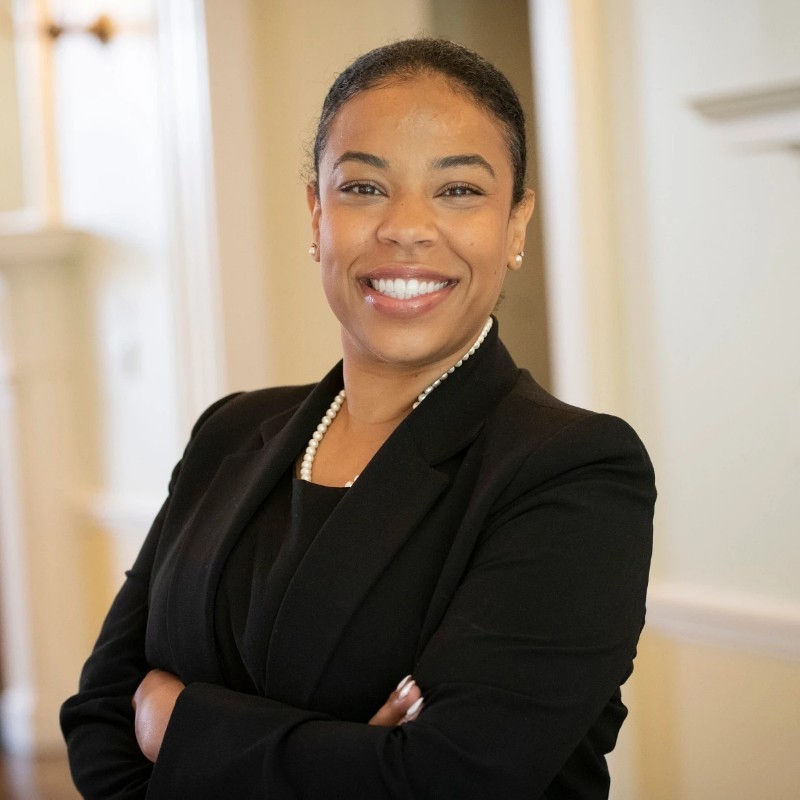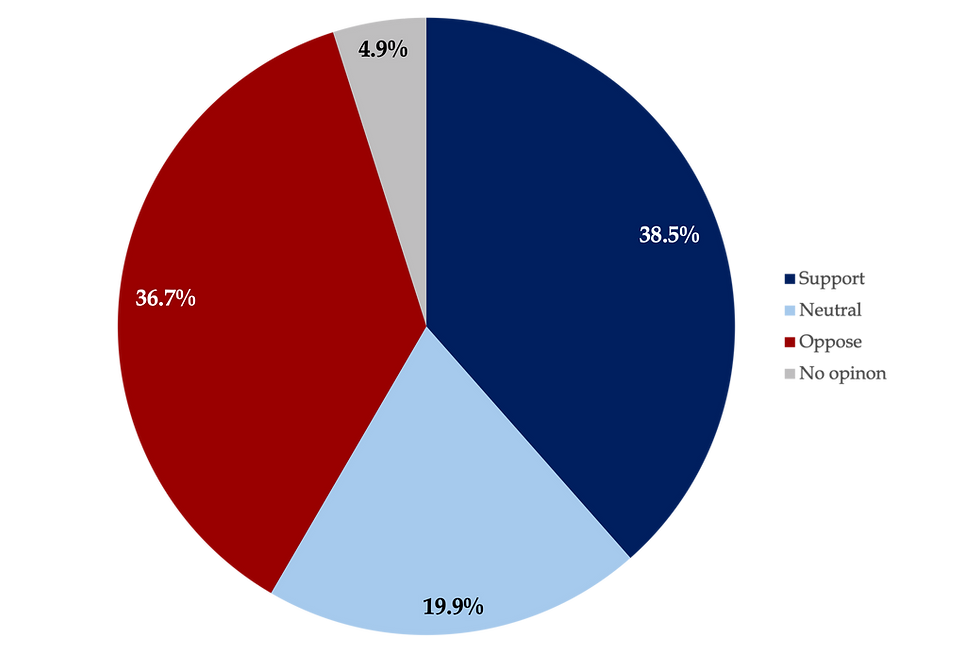Diversity and Inclusion at HBS
- Loujaine AlMoallim

- Nov 15, 2022
- 5 min read
Updated: Sep 1, 2023
Loujaine AlMoallim (MBA ’24) interviews Alicia Thomas about her new role as Director of Diversity and Inclusion for MBA and Doctoral programs at Harvard.

Loujaine AlMoallim, Women’s Leadership Editor
Can you briefly tell us about your journey that got you to where you are today?
I have worked in the higher ed space for almost 15 years in a range of roles that supported student success. This was certainly an unlikely career path based on my educational background (BA in Economics & MBA), but it was important to combine my passion for mentorship and non-profit management into a career. Higher ed turned out to be a space where I have been able to grow and make an impact as a professional.
While at the University of Maryland, I served as an academic advisor and put myself in the position to understand the entire student experience from admissions to graduation. I updated policies and programs to better meet student needs, making it easier for them to access our office and increase internal office efficiencies. Understanding the need to build community within our minority STEM populations, I created a mentoring program that connected freshmen with upperclassmen, and exposed students to the minority faculty and staff on campus. It has always been important that I amplify the voices and experiences of our historically marginalized populations to create more equitable experiences in the classroom and beyond.
I then moved on to Georgetown McDonough School of Business where I worked in the MBA Program Office as advisor to multiple cohorts, the student government association, and clubs. Again, I was in the position to push change in the processes and programs that support student success. It’s a space that I thrive in. I planned and facilitated student leadership training on implicit bias, and created a DEI mission for our clubs, setting a standard that they bring in more diverse speakers and events to the community. I also supported our diverse fellowships like Consortium, Fort𝑒́, and Coverdell. My experiences at Georgetown exposed me to more faculty and helped me understand what high-achieving MBA students needed to thrive. Being able to work with MBAs allows me to impact our future business leaders, and I’ve really enjoyed working with this population.
HBS reached out about this inaugural role as Director, Diversity and Inclusion, MBA & Doctoral programs at a time where I was looking for a change. I appreciated the work HBS has done to support the Racial Equity Plan, and that they had a larger Diversity and Inclusion office to support this work across HBS. I’m excited for what is to come!
How do you define Diversity and Inclusion (D&I) and why is it important?
I see diversity and inclusion as a pivotal piece in creating more equitable spaces both in and out of the classroom. This applies across industries and functions as well. Diversity is the intersectionality of who we are as a whole person. There are many aspects that go into diversity—race and gender are just the beginning. Beyond showing up as a black woman every day, I am also showing up as a physically able person, with a strong family unit that supports me. We have to recognize that there are many aspects that go into diversity— race and gender are just the beginning. We are also defined by our upbringing, socioeconomic status, sexual orientation, and physical abilities, to name a few. One of our identities may be more apparent than others, so that impacts how we show up in meetings, in the classroom, and in our day-to-day activities. I think that recognizing we all bring much more to the table than we think is an important step when we talk about diversity at HBS.

Alicia Thomas, Director of Diversity & Inclusion at HBS
Inclusion is the active and intentional effort to create a sense of belonging for everyone in our community. Are we bringing all voices to the table? Am I an ally when it matters? As educators, we owe it to our students and the HBS legacy to create a space where all students can thrive, no matter who they are.
What recommendations would you give current and future HBS leaders when it comes to implementing D&I initiatives in their position?
For current students, lean into tough conversations that may make you uncomfortable, that means it’s an opportunity for growth. Practice active listening and accept that your reality is likely different from your peers, and that is okay. You are here to learn and grow from each other, and the rest of the HBS community, so take advantage of speakers and sessions that are out of your comfort zone or that you’ve never considered before.
As future HBS leaders, do not lean only on peers or colleagues to lead the charge on D&I initiatives without the support of leadership and resources. D&I work is a full-time job that influences changes in a larger system, and it deserves the resources to be set up for success. As a leader, I encourage you to emphasize the importance of this work, and truly listen to your community to understand their needs. Use data for transparency and accountability to help guide you on this journey to a more inclusive work environment.
Could you give us a view on the D&I initiatives at HBS?
I am lucky to work alongside the HBS Office of Diversity, Equity and Inclusion team—Terrill Drake, Jen Eliason, Brook Dennard Rosser, and Andy Martinez. They have been doing so much work on the ODEI infrastructure that will support the entire HBS community. I’m excited for the rollout of their website and resources so more of the community can see what they have been working on and feel supported on the D&I front.
The recent financial aid announcement that provided additional support to our students with the most need is a big win. Making the MBA more accessible allows us to bring in even more diverse students who may not have ever considered HBS. The addition of Race to the Gender & Equity initiative will signal that we are serious about research on race and equity in the workplace. We are also growing our RISE (Recognizing Individuals Seeking Equity) community by providing financial support to one student who will work for a growing business that is creating economic opportunity for marginalized communities in the U.S after graduation. These are just a few initiatives, but there are many more happening across the different HBS departments.
Throughout your journey, what is the greatest lesson that you believe you learned and what is one piece of advice you would give people reading this?
I have learned that not everyone understands the importance of treating others as they would want to be treated. For me, that is how you gain respect and trust. It is a simple lesson, but it has been pivotal in my ability to build relationships both personally and professionally. That means treating others with the respect and dignity they deserve as a human.
One piece of advice I would give to people reading this is that we are all better off when we have more diverse voices in the room. Businesses are more innovative and thoughtful when we bring in different perspectives and lived experiences. Diversity and inclusion work is pivotal in every company.
Loujaine (MBA ’24 ) is a Saudi Arabian who spent most of her formative years in Canada. After completing her undergraduate degree at McGill University majoring in International Management, she moved back to Saudi Arabia and worked in Consulting. She enjoys traveling and exploring new places, hosting people over for small gatherings and baking and decorating cakes.




Comments